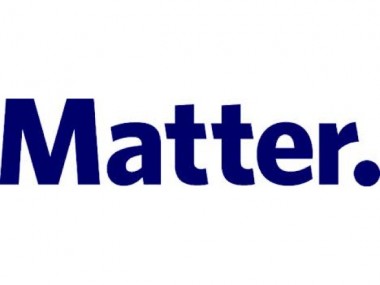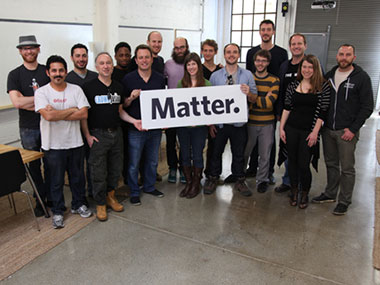Media Matters to Startups at Matter Demo Day

Yesterday was a graduation day of sorts for the media accelerator Matter’s inaugural class in San Francisco.
The group’s first-ever demo day featured six startups pitching their products to venture capital firms including Greylock Partners and Sierra Ventures, along with various angel investors, for their first seed rounds.
Matter is funded by the Knight Foundation, KQED and Public Radio Exchange, and each startup received $50,000, three months of mentoring sessions, and workshops leading up to the day.
 Corey Ford, CEO of Matter, kicked off the event, saying that entrepreneurs will leverage technology for the future of storytelling. He said that the early-stage startups that joined Matter are building meaningful media ventures.
Corey Ford, CEO of Matter, kicked off the event, saying that entrepreneurs will leverage technology for the future of storytelling. He said that the early-stage startups that joined Matter are building meaningful media ventures.
“What we’re doing here is unique,” Ford said. “Our emphasis is on community and culture and focusing on the mission to attract great talent who are pursuing a viable business model to make a huge impact for a more informed and connected society.”
The six ventures that participated in the first Matter Demo Day included:
- ChannelMeter’s YouTube analytics platform for publishers and other brands.
- News discovery app Inkfold.
- Citizen watchdog journalism venture OpenWatch.
- Text-to-audio newsreader Spokenlayer.
- Video playlist builder/broadcaster StationCreator, which allows anyone to distribute their own 24-hour broadcast station online.
- Interactive storytelling project Zeega.
Daniel Davis, co-founder and CEO of Inkfold, demonstrates how users can share favorite quotes from articles they read on its service.
Will Mayo, founder and CEO of the audio newsreader Spokenlayer, highlighted the need for on-the-go friendly access to news.
“It’s time to change the way we consume content and take it with us,” Mayo said. “It’s time to listen, because we’re too busy to read.”
John Boland, president of Northern California public media company KQED, said the program has allowed the station to really engage with startups and have access to new ideas.
“We have a front-row seat to work with these teams,” Boland said. “We own seven percent of each of the companies, so if one turns into a big success, it’s great for us. It also helps dispel the idea that public radio is stuck in the 20th century.”
Boland said that KQED has already started using Zeega, which allows users to mash up video clips, songs, GIFs and social media content from around the Web. KQED also plans to use ChannelMeter, which lets users keep track of data that can help uploaders know which of their videos perform the best.
Back in December, about 200 companies applied for the handful of spots available to join Matter. The accelerator will continue to support the selected startups for the next month as they raise funds.
Matter also announced that it is opening applications to a second incubator class, which will begin Oct. 7.
(Feature image courtesy of StationCreator)








